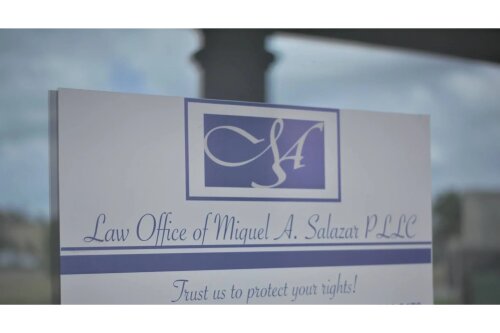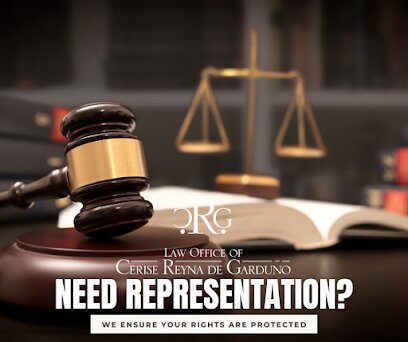Best Brain Injury Lawyers in Indiana
Share your needs with us, get contacted by law firms.
Free. Takes 2 min.
Or refine your search by selecting a city:
List of the best lawyers in Indiana, United States
About Brain Injury Law in Indiana, United States
Brain injuries can have life-changing effects, impacting every aspect of a person's daily life. In Indiana, brain injury law is focused on protecting the rights of individuals who have sustained brain injuries because of someone else's negligence, intentional harm, or defective products. These injuries may result from car accidents, slips and falls, workplace accidents, sports incidents, or medical malpractice. The legal system offers brain injury victims a way to seek compensation for medical expenses, lost income, pain and suffering, and other related damages.
Why You May Need a Lawyer
The aftermath of a brain injury can be overwhelming for victims and their families. Legal proceedings can be complex, especially when dealing with insurance companies or proving the extent of an injury. You may need a lawyer if:
- You or a loved one has suffered a brain injury due to another person's negligence.
- An insurance company is denying or undervaluing your claim.
- The cause of the injury is disputed, or multiple parties are involved.
- You need to calculate both immediate and long-term costs, such as ongoing medical care and lost earning capacity.
- There are questions about liability or contributory fault.
- You need help navigating Indiana's complex legal system and meeting deadlines for filing claims.
A skilled brain injury attorney can help investigate the incident, gather evidence, work with medical experts, and fight for fair compensation on your behalf.
Local Laws Overview
Indiana has specific laws that affect brain injury claims:
- Statute of Limitations: In Indiana, the standard time limit to file a personal injury claim is two years from the date of the injury. Missing this deadline generally means losing your right to compensation.
- Comparative Fault: Indiana uses a modified comparative fault system. If you are partially at fault for your injury, your compensation can be reduced by your percentage of fault. If you are more than 50 percent at fault, you may not recover any damages.
- Damage Caps: Indiana law places caps on damages in certain cases, such as medical malpractice, but not on most other personal injury claims.
- Insurance Requirements: Indiana requires drivers to carry minimum auto insurance, which can play a role in recovering damages from car accidents resulting in brain injury.
- Government Claims: Special procedures and shorter deadlines apply if your injury claim is against a government entity.
Understanding these laws is crucial for protecting your rights and maximizing your recovery.
Frequently Asked Questions
What types of incidents commonly cause brain injuries in Indiana?
Brain injuries can result from motor vehicle accidents, falls, sports injuries, workplace accidents, violent assaults, and medical errors.
What symptoms should I look for after a possible brain injury?
Watch for headaches, dizziness, confusion, memory loss, changes in mood or behavior, sensitivity to light or sound, or loss of consciousness. Seek medical attention immediately if any symptoms appear.
Do I have to pay upfront for a brain injury lawyer?
Many Indiana brain injury lawyers work on a contingency fee basis, meaning you only pay if they secure compensation for you.
How do I prove someone else caused my brain injury?
You will need to show that another party acted negligently or wrongfully, that this caused your injury, and that you suffered damages. A lawyer can help gather evidence and build your case.
What compensation can I recover for a brain injury?
Possible compensation includes medical expenses, future medical care, lost wages, diminished earning capacity, pain and suffering, rehabilitation, and more.
Is there a deadline to file a claim?
Yes, you typically have two years from the injury date to file, but exceptions exist. Acting quickly ensures you do not lose your right to recover damages.
Can I still recover damages if I was partly at fault?
Yes, under Indiana’s comparative fault law, you can recover damages as long as you are not more than 50 percent at fault. Damages will be reduced by your percentage of fault.
What if my injury occurred at work?
If the injury happened on the job, you may be entitled to workers’ compensation benefits. In some cases, you might also have a personal injury claim against a third party.
What should I do immediately after suffering a brain injury?
Seek immediate medical attention, document your symptoms and the incident, keep all medical records, and consult an attorney before discussing the case with insurance companies.
Are children’s brain injury claims handled differently in Indiana?
Claims for minors may involve special considerations, such as longer filing deadlines and approval by a court to ensure the child’s interests are protected.
Additional Resources
If you or a loved one is dealing with a brain injury, the following Indiana-based resources may be able to help:
- Indiana Brain Injury Association: Provides support, education, and advocacy for individuals with brain injuries and their families.
- Indiana Department of Insurance: Can assist with complaints or questions about insurance claims.
- Indiana State Bar Association: Offers lawyer referral services to help you find an experienced attorney.
- Indiana Family and Social Services Administration: Offers resources for people with disabilities and their families.
- Local hospital social workers and rehabilitation centers: These professionals can direct you to medical and legal resources in your area.
Next Steps
If you believe you or a family member has suffered a brain injury, take the following steps:
- Prioritize immediate medical attention and follow all treatment recommendations.
- Document everything about the injury and its effects, including photos, medical records, and notes on symptoms.
- Consult a knowledgeable Indiana brain injury attorney as soon as possible to discuss your situation and learn about your rights.
- Avoid discussing your case in detail with insurance adjusters without legal representation.
- Reach out to support organizations or agencies in Indiana for additional guidance and resources.
Taking action quickly can make a significant difference in your recovery and your ability to secure the compensation you deserve. An experienced lawyer will guide you through each step and advocate for your best interests.
Lawzana helps you find the best lawyers and law firms in Indiana through a curated and pre-screened list of qualified legal professionals. Our platform offers rankings and detailed profiles of attorneys and law firms, allowing you to compare based on practice areas, including Brain Injury, experience, and client feedback.
Each profile includes a description of the firm's areas of practice, client reviews, team members and partners, year of establishment, spoken languages, office locations, contact information, social media presence, and any published articles or resources. Most firms on our platform speak English and are experienced in both local and international legal matters.
Get a quote from top-rated law firms in Indiana, United States — quickly, securely, and without unnecessary hassle.
Disclaimer:
The information provided on this page is for general informational purposes only and does not constitute legal advice. While we strive to ensure the accuracy and relevance of the content, legal information may change over time, and interpretations of the law can vary. You should always consult with a qualified legal professional for advice specific to your situation.
We disclaim all liability for actions taken or not taken based on the content of this page. If you believe any information is incorrect or outdated, please contact us, and we will review and update it where appropriate.
Browse brain injury law firms by city in Indiana
Refine your search by selecting a city.













